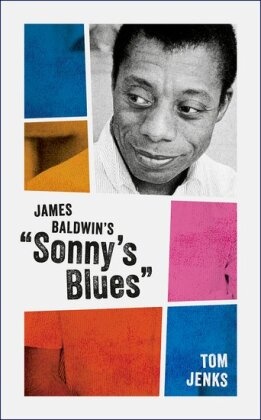
James Baldwin's "Sonny's Blues"
| Verlag | Oxford University Press |
| Auflage | 2024 |
| Seiten | 128 |
| Format | 14,2 x 1,4 x 22,5 cm |
| Print PDF | |
| Gewicht | 270 g |
| Artikeltyp | Englisches Buch |
| Reihe | My Reading |
| EAN | 9780192884244 |
| Bestell-Nr | 19288424EA |
A close reading of James Baldwin's short story "Sonny's Blues" with references to Baldwin's famous essay The Fire Next Time, which provides insight into his life and ideas about art. Jenks unpacks his close relationship to the story, which he has been reading and teaching at writing workshops for more than thirty-five years.
A close reading of James Baldwin's short story "Sonny's Blues" that provides insight into his life and ideas about art.
Tom Jenks's reading of James Baldwin's "Sonny's Blues" follows a scene-by-scene, sometimes line-by-line, discussion of the pattern by which Baldwin indelibly writes "Sonny's Blues" into the consciousness of readers. It provides ongoing observations of the aesthetics underlying the particulars of the story, with references to Edward P. Jones (whose magnificent story "All Aunt Hagar's Children" bears a knowing relationship to "Sonny's Blues,") to Charlie Parker's music, and to Billie Holiday's "Am I Blue?" and John Coltrane's "A Love Supreme" as part of the musical progression Baldwin creates, and with attention to Baldwin's oratorical gifts and the biblical references in the story, to its time structure, characterizations, dramatic action, and, most of all, its totality of effect.
Drawing on Baldwin's book-length essay The Fire Next Time, which Bald win published six years after the publication of the short story, Tom Jenks offers insight on some of the sources in Baldwin's life for "Sonny's Blues" and on the logic and passion by which life may be meaningfully transformed into art.
Inhaltsverzeichnis:
Prologue
Act I
Act II
Act III
Epilogue
Bibliography
Rezension:
Tom Jenks's appreciation of Baldwin's story is almost as moving as the text, itself. It's brilliant, perfectly elucidating not only Baldwin's writing, but reminding us of the unspoken agreement between writer and reader that reading can transport us most when each person brings equal passion to the task. Ann Beattie, Author of The New Yorker Stories
